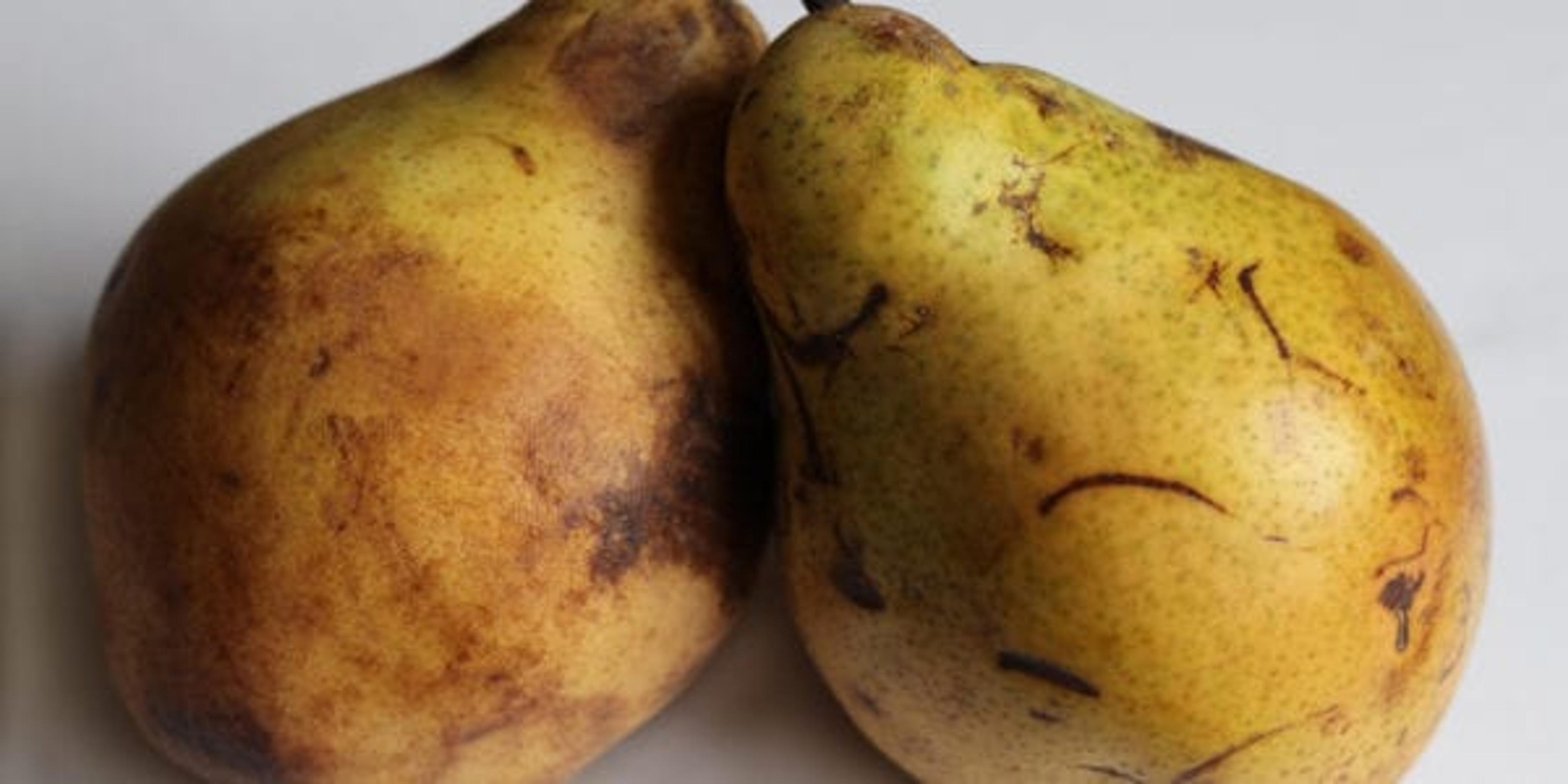Why You Should Give “Ugly” Fruits and Vegetables a Chance

Julie Bitely
| 2 min read

Do you tend to pass over produce with visible bruising, scars or blemishes?
Farmers and food-waste activists would implore you to take another look and open your heart, wallet and taste buds to so-called “ugly” fruits and veggies.
At Real Food Farm in Caledonia, funky tomatoes are sold with pride at the Fulton Street Farmers Market and elsewhere in the greater Grand Rapids area. Farmer Audrey Hughey assures shoppers that heirloom or hybrid tomatoes with scars are just as delicious and nutritious as their more conventionally attractive counterparts. She explains that unique deformities are typically the result of damage to the fruit when it’s small, such as a bee trying to re-pollinate the plant or the fruit getting scraped.
“Those damages as a small fruit will last throughout the entirety of the fruit’s life cycle,” she said. “Every single plant produces fruit that’s damaged, however, by the time that it gets to the store, all of those fruits have been discarded or made into sauce.”
Essentially, consumers want pretty fruits and vegetables and retailers have taken note.
According to the group End Food Waste, which runs an Ugly Fruit and Veg Campaign, “as much as 40 percent of produce goes uneaten because it doesn’t meet retailers’ strict cosmetic standards.” Of that, “about 50 percent of all wasted food happens at the farm and in transit,” because it doesn’t have the look that retailers desire.
However, major retailers are starting to embrace ugly produce as a way to combat food waste. Even better? Fruits and vegetables that aren’t as pretty may actually pack more of a nutritional and flavorful punch. The theory is that when produce has to defend itself – against pests, weather, and other hardships – the resulting yield may not look as nice, but it could have higher levels of antioxidants and a chemical makeup more pleasing to your palate.
It really is about what’s on the inside when it comes to produce. Don’t be afraid to rescue those less-than-perfect fruits and vegetables the next time you’re at the market – better taste and nutrition could be your reward.
Check out Grace Derocha and Farmer Audrey’s Facebook Live video below.
Photo credit: Keith Williamson





